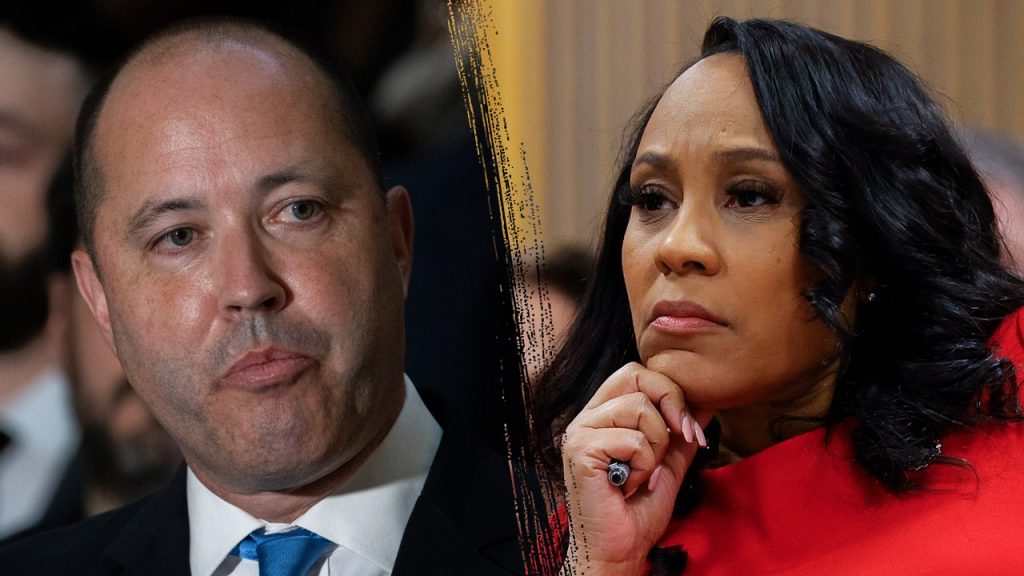The legal battle surrounding the Georgia election interference case against former President Donald Trump has taken a dramatic turn with Fulton County District Attorney Fani Willis facing disqualification and appealing to the state Supreme Court. Georgia Attorney General Chris Carr has publicly urged the court to reject Willis’s appeal, escalating the conflict and raising questions about the future of the high-profile case. This intricate legal saga revolves around allegations of impropriety stemming from a romantic relationship between Willis and special prosecutor Nathan Wade, who was initially part of the prosecution team.
The controversy erupted when a Georgia court of appeals ruled to disqualify Willis from the case, citing an “appearance of impropriety” arising from her relationship with Wade. The court’s decision emphasized that Willis’s personal involvement created a conflict of interest, potentially compromising the integrity of the prosecution. The ruling stated that the trial court had erred by not disqualifying Willis and her office, highlighting the potential for bias during pretrial decisions regarding prosecution targets and charges. The court’s decision did not dismiss the indictment against Trump but effectively removed Willis and her team from further involvement in the proceedings.
Attorney General Carr, who has announced his gubernatorial candidacy, seized upon the appeals court decision, publicly denouncing what he perceived as “lawfare” in American politics and urging the state Supreme Court to reject Willis’s appeal. Carr emphasized his belief that Willis’s actions had created an unnecessary conflict and that her removal was justified. He further called for Willis to redirect her focus towards addressing violent crime in Fulton County, suggesting that the resources allocated to the Trump case could be better utilized elsewhere. This public intervention by the state’s top legal officer adds another layer of complexity to the already contentious legal battle.
Willis’s involvement in the case began with her spearheading the extensive investigation and subsequent indictment of Trump and others related to alleged election interference in Georgia. However, her actions came under scrutiny following accusations of an “improper” relationship with Wade, whom she had personally hired for the prosecution team. The allegations led to Wade’s eventual removal from the team. Despite the court’s decision to disqualify Willis, the indictment against Trump remains, leaving the future of the prosecution uncertain. The court’s focus on the appearance of impropriety during pretrial decisions raises concerns about the potential impact on the case’s trajectory.
The appeals court’s ruling specifically criticized the trial court’s failure to address the appearance of impropriety created by Willis’s relationship with Wade, particularly during pretrial stages when crucial decisions regarding prosecution strategy were being made. The appeals court argued that the trial court’s proposed remedy did not adequately address the existing appearance of impropriety, emphasizing the need for a more decisive action to maintain public trust in the judicial process. This emphasis on the pretrial phase highlights the significance of impartiality and objectivity during the early stages of a legal proceeding.
This complex legal battle now hinges on the Georgia Supreme Court’s decision regarding Willis’s appeal. If the court upholds the disqualification, a new prosecutor will need to be appointed to take over the case, potentially causing significant delays and raising new questions about the prosecution’s strategy. The outcome of the appeal will have far-reaching implications, not only for the future of the Georgia election interference case but also for the broader perception of prosecutorial conduct and the intersection of personal relationships and legal proceedings. The case continues to attract national attention, highlighting the ongoing debate surrounding the 2020 election and its legal ramifications.










